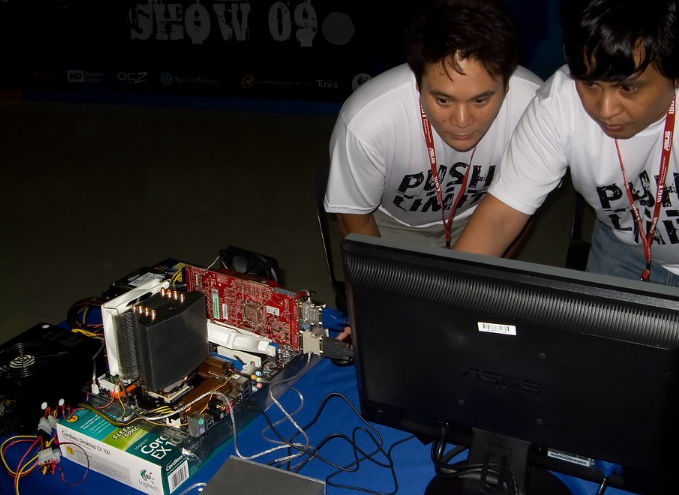Overclocking offers your pc an extra advantage. By overclocking, you force your computer hardware to become at its maximum performance. CPUs can frequently perform greater than their standard specifications. A 3 ghz can certainly work at a peak of 3.3 gigahertz performance. You can securely and properly force your computer hardware performance to its maximum. That is where overclocking offered. It accelerates your system and offers powerful signals.
While not an absolute, the normal rule is, the more expensive the model, the higher possibilities of a successful and trouble free overclocking. More recent models have more engineered parts that can operate greater than rated speeds and may adapt properly to overclocking. An easier way to find out if your computer has the ability to be overclocked is to use software which works at figuring out your computer processor.
Obtaining full specifications or even information on your computer hardware can provide you with indications as to how capable your pc peripherals are in adapting to speed changes and if they can hold up against standing heat. By figuring out your pc’s limit you might be able to figure out how far you are able to overclock your pc.
Apart from using software, much information can be obtained by means of internet research. You will find many overclocking databases on the internet. Most computer websites deal with problems on overclocking. You can also become a member of forums particularly dealing with overclocking problems.The majority of forums today are free for becoming a member. it is possible to gather knowledge from computer lovers that have skilled experience on overclocking. This guide for pc overclocking can be the right place to start.
Not every computer hardware can be properly overclocked. This is especially correct with older computers since their hardware peripherals are generally not as completely developed and versatile as that newer models. Start working on overclock meticulously. Check your pc specifications prior to overclocking it. Old computer systems are less capable to adapt to speed changes and might encounter great issues after getting overclocked. If you overclock an incapable computer, the chances are, you will encounter system data loss, repeated booting issues, recurrent system shut downs, crashing, and system malfunction. So, understand full your pc specification before trying to overclock it.
Each CPU possesses a set internal number, it is known as clock multiplier. Multiply this number with that of the front- side bus (the reference clock) and you will know the processor’s clock speed. By escalating multiplier settings or even only the front-side bus or getting into both, you can overclock the CPU. Nevertheless, CPU manufacturer often include multiplier locking. This can be a measure they to make sure that the expected speed can be run by the processor. Once the multiplier is locked, it cannot be modified or changed in the BIOS. They do this to counteract CPU ‘re-markers’ from selling substandard products expensively. Therefore, overclocking is prevented.
The good thing is, only a few of them are locked. Vendors are now providing products that do not effectively possess the multiplier locking feature. With such product line, you just need to modify the multiplier from 10 to 11 while not having to overclock by using front-side bus.
Overclock your pc gradually, a level each time. Sudden speed setting modifications might cause quick system instability or even malfunction. Gradual overclocks give you a comprehensive observation about how your pc is responding to the changes. Focus on each level for some time to find out possible system issues before moving forward to the next level. Overclock only if expectations are high for your computer hardware. If not, just plan for a new one. Otherwise, you might find yourself wasting much on repairs.
